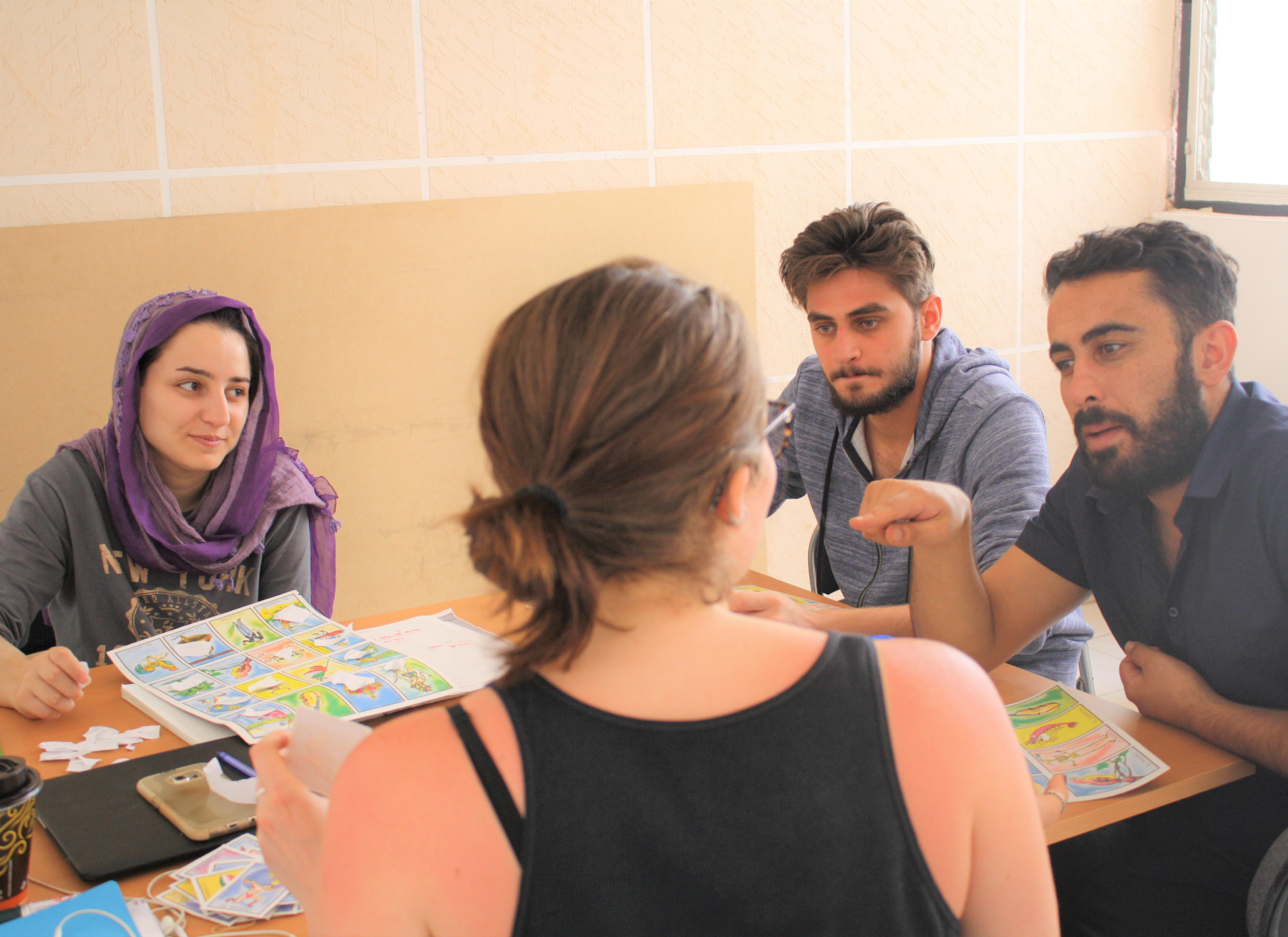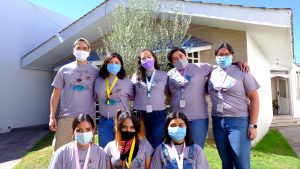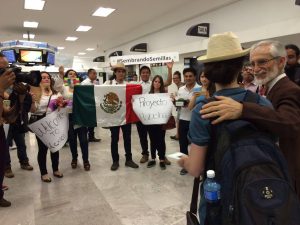Continuing Higher Education Amid Crisis
How Proyecto Habesha is creating a community for refugees completing higher education in Mexico
“We understand that [Mexico] also has a global responsibility. In helping to solve global problems, we also create local solutions.” – Adrián Meléndez, Director of Proyecto Habesha
Higher Education in Emergencies
According to the UNHCR (United Nations High Commissioner for Refugees), 600 million of the world’s young people live in conflict-affected areas and, of these individuals, only 3% have access to higher education. Since the onset of the Syrian Civil War in 2011, 5.6 million Syrians have sought asylum, approximately 25% of whom are under the age of 18. With worsening crises in Yemen, Myanmar, Venezuela, and Central America, among others, disruptions to higher education globally only continue to increase. As part of its Global Compact on Refugees, the UNHCR aims to increase refugee enrollment in higher education to 15% by 2030.
While working in refugee camps in Iraq and Lebanon, Adrian Meléndez saw first-hand the lack of access to higher education. After working in a variety of roles with the United Nations and other organizations in Lebanon, Iraq, and Afghanistan, Meléndez returned to Mexico in 2014 to realize his vision: creating opportunity for Syrian students to continue their studies otherwise interrupted by crisis. Supported by a variety of actors in Mexican civil society, Meléndez began Proyecto Habesha in 2014. Amidst the worsening refugee crisis, Proyecto Habesha has now supported 38 student beneficiaries continuing their education in Mexico. As part of Proyecto Habesha’s pledge with the Mexican government in the Global Refugee Forum from December 2019, they should welcome 150 more students by 2024.
“We believe that there were global implications [to the Syrian Refugee Crisis], and we believe that Mexican civil society was ready to act on something that was not just a Mexican problem,” Meléndez said.
Proyecto Habesha’s Approach
Proyecto Habesha is a Mexico-based NGO that facilitates access to higher education for refugee students whose studies have been interrupted by political strife. Proyecto Habesha selects Syrian students in refugee camps, brings them to Aguascalientes, Mexico for immersive language support, and supports them financially throughout their studies in Mexican universities.
Comprehensive Student Support: Once Proyecto Habesha selects a student, the student receives wraparound support in four steps: arrival, integration, studies, and work. First, Proyecto Habesha takes care of travel costs, immigration processes, and university acceptances. Then, Proyecto Habesha brings all students to Aguascalientes, Mexico for an immersive language course that prioritizes reintroduction to higher education. Next, students are paired with a partner university, where they receive a full scholarship. During school and post- graduation, Proyecto Habesha helps students find paid opportunities with private sector partners. Meléndez finds that this all-encompassing support allows Proyecto Habesha to select students from all backgrounds – not just those whose previous privilege and knowledge of English attracts other programs.
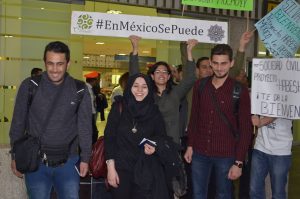
Selection through NGO-based Referrals: Proyecto Habesha relies heavily on the referral of grassroots NGOs for selecting student beneficiaries. Having worked previously in refugee camps, Meléndez knew that many NGOs hired talented and driven camp residents for their operations. Consequently, in coordination with other factors, Proyecto Habesha partners with camp-based NGOs to filter and select candidates who have already demonstrated their likelihood to succeed in continuing higher education.
“When we see someone that we believe has the potential and keen desire to complete higher education, that’s good for us. We see the capacity, we see the potential in every human being.” – Adrián Meléndez
Integrated Partnerships: Every step of Proyecto Habesha’s comprehensive model relies on integrated partnerships. Securing student visas requires cooperation with the public sector. Providing full scholarships depends on collaboration with universities, which Meléndez first established with his alma mater, Universidad Panamericana. Directing students to paid work creates private sector partnerships. Establishing sustainable funding necessitates deep partnerships with civil society members, both conservative and liberal.
Increasing Knowledge Base and Global Cooperation: Proyecto Habesha aims to work with and lead the international community in better supporting refugee students. In 2019, Proyecto Habesha partnered with UNHCR Mexico and the Canadian Embassy to host the “Higher Education for Refugees in Mexico International Conference.” This conference, along with its guide, reflects Proyecto Habesha’s commitment to sharing its best practices with institutes of higher education around the globe.
Reframing International NGO Paradigms: Proyecto Habesha aims to demonstrate that humanitarian solutions do not only need to come from the United States and Europe. Having operated on a low budget, Meléndez hopes to show that Mexican civil society is a member of the global community.
“If we managed to have success, it is also proof for other organizations in the world to say we can look at countries like Mexico that are developing … they say, “OK, maybe we can share the [responsibility of humanitarian initiatives] with these countries.” – Adrián Meléndez
Challenges Faced
Cultural Perceptions: As a result of increased anti-refugee rhetoric coming from the United States, Proyecto Habesha had to overcome similar inertia in Mexico. Melendez credits the #EnMexicoSePuede campaign with changing perceptions of Syrian refugees.
Financial Sustainability: Until 2019, Proyecto Habesha relied exclusively on private support for its operations. This limited Proyecto Habesha to a smaller number of students they could support. Recent partnerships with the UNHCR and Canadian Embassy, however, will enable Proyecto Habesha to sustainably expand the number of students they can support.
Proyecto Habesha’s Best Practices
Coalition-Building in Civil Society: Under the “Humanitarian Flag,” Meléndez initially brought together a group of actors from all ideological positions to support Proyecto Habesha, including academics, conservative catholic groups, and liberal nonprofit organizations. He aimed to rally support from all elements of Mexican civil society.
“We were very clear from the beginning that we were a humanitarian initiative and that we didn’t have any ideological or political affiliation,” Meléndez said.
Mobilizing Mass Support: When they first launched, Proyecto Habesha established a social media campaign with the hashtag #EnMexicoSePuede or “In Mexico, it’s possible.” As the hashtag caught on and media promotion accelerated, Proyecto Habesha began to see support from around the country with many different individuals and groups wanting to know how they could support incoming Syrian students.
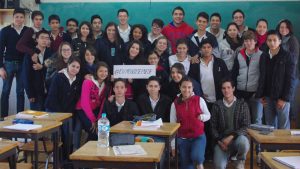
Leveraging Communications Success: Capitalizing on social media success, Proyecto Habesha has invested in its ability to produce video, graphical, and written communications. With limited finances, “social media is a very convenient way for us to share our message and to build alliances,” Meléndez said.
Demonstrating Success at a Low Cost: Proyecto Habesha has facilitated continued higher education for _ students in its _ years of operation. Meléndez estimates that lower general costs in Mexico mean that Proyecto Habesha is able to support five times as many students as a similar organization in the United States.
Responding to Changing Circumstances: In 2019, the United Nations Commission on Human Rights (UNCHR) asked Proyecto Habesha to create a similar program, but for Central American refugees who increasingly see Mexico as their final destination, not just a stop on the way to the United States. In response, Proyecto Habesha developed HabeshaAmericas, a similar initiative targeting displaced Central Americans.
Vision for the Future
Meléndez envisions Proyecto Habesha continuing to welcome more students from a greater variety of backgrounds. As more students lose access to higher education because of crises in Yemen, Myanmar, Venezuela, and other locations, Meléndez hopes Proyecto Habesha can support these students. A key element of this is donor diversification. In his office, Meléndez has a global map full of pins and strings identifying sources to contact for funding support.
Meléndez also hopes that Proyecto Habesha can build off its recent successes in fostering international dialogue and sharing best practices. Specifically, Proyecto Habesha hopes to cultivate research around the need for models like Proyecto Habesha’s and their impacts.
Adrian Meléndez is the Founder and Director of Proyecto Habesha
To learn more about Proyecto Habesha please visit: https://www.proyectohabesha.org/english/index.html

